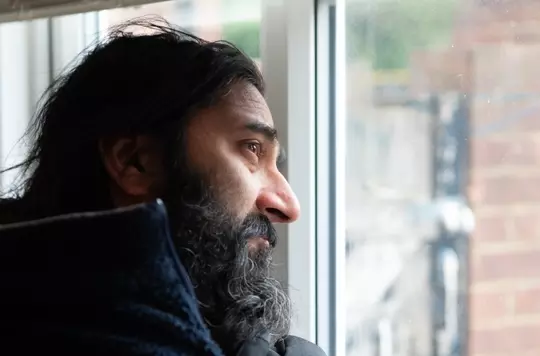Ajoba's journey
Ajoba spent nine years living and working without pay in a house in the UK after being trafficked from Ghana. It wasn’t until her trafficker died and Ajoba was left on the street that someone directed her to The Salvation Army, where she is now in a safehouse receiving medical care and support with her claim for asylum.
Things quickly changed once Ajoba arrived in the UK. She was told not to go anywhere or associate with anyone.
Ajoba, 52, was living with her elderly parents in a farm house in Ghana and was the bread winner for the family. Ajoba had no formal education but was her parents’ only child so took farm produce to the city to sell and used the money to buy food for the family.
In 2004, Ajoba was in the market selling as usual when a woman approached her, purchased all the farm produce and said she would take Ajoba to the UK for a better job. Her parents met with the woman and were very happy with the offer - they thought their daughter would have a better life, be able to support them better or even allow them to move to the city for better living conditions. Ajoba was offered money and the lady arranged all the necessary documentation for her to come to the UK on a six-month visitor visa.

However things quickly changed once Ajoba arrived in the UK. She was told not to go anywhere or associate with anyone; she was at home all the time doing the house chores, cooking and cleaning. When she asked the woman about the promised job, she was told the correct documents were being prepared. Ajoba lived and worked for nine years in the woman’s house without pay, during which time she learnt her parents had died in Ghana.
In 2012 the woman was away visiting family back in Ghana when she became unwell and died. Ajoba didn’t know any of the woman’s family but one day two women, who said they were her children, came to the house and packed away everything including Ajoba’s passport and chased her out. She ended up on the street, sleeping in bus stops and on buses until someone directed her to The Salvation Army where she was moved into a safehouse.
Since arriving at the safehouse Ajoba, who is diabetic, has been given medical care, a solicitor to help with her asylum claim and has been referred to CBT (Cognitive Behavioural Therapy) Counselling.

How we support survivors
Find out how we support survivors of Modern slavery through our Government contract and a wide range of specialist services.

Global response
Find out more about our work to stop human trafficking at the source globally

Survivors' stories
Survivors of modern slavery supported by The Salvation Army share their stories

Modern slavery
We have been combatting slavery and supporting survivors of this horrendous crime since our earliest days, but what is modern slavery and how can we spot the signs in our own community?